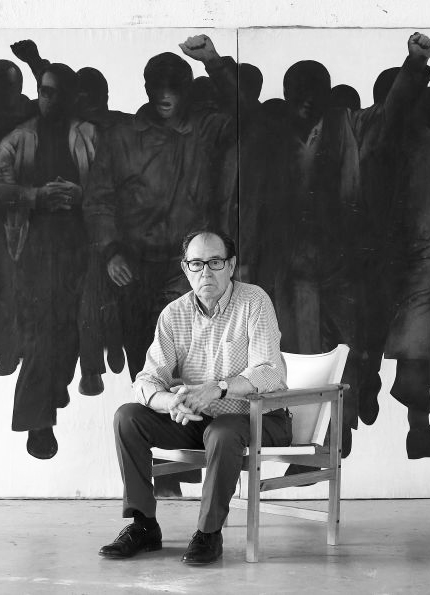Canogar, Rafael

Rafael Canogar is one of the most significant Avant-guard Spanish artists and one of the founders of the renowned group El Paso. He was born in Toledo in 1935, although he moved to Madrid in 1944. At only 16 years old, he started working in Daniel Vázquez Díaz’s workshop, becoming his apprentice at the same time as he studied drawing at the Círculo de Bellas Artes.
At the beginning of his career he painted figurative works, including landscapes and portraits. He employed a pictorial-sculptural technique, modelling the paint with scratches and squeezing it to give volume to his creations. In 1957, together with other great artists like Antonio Saura, Manolo Millares or Luis Feito, he founded the group El Paso, dedicated to break with classic traditions that dominated Spanish art.
During his collaboration with El Paso, Canogar adopted an informalist style, which he considered to be the maximum expression of freedom, as well as substantial and mystical. However, in 1963, he returned to figuration, but this time with a much more complex image and introduction to new materials.
This style lasted a decade, until he switched to abstraction.
In the mid-70s, he had a period where he only created abstract paintings, even though soon after he combined figuration and abstraction. Through the representation of masks, heads, and faces as symbols of men losing their individuality, he forged his most distinctive artistic identity. Nevertheless, from his figurative works until his abstractions, Canogar is characterized by his artistic gesture, materiality, and color.
Throughout the second half of the 20th century, the artist exhibited in a variety of museums like the Museo Reina Sofia, the Guggenheim, or MOMA of New York or the Musée d’Art Moderne of Paris. Nowadays, he continues to see his work exhibited around the world.

